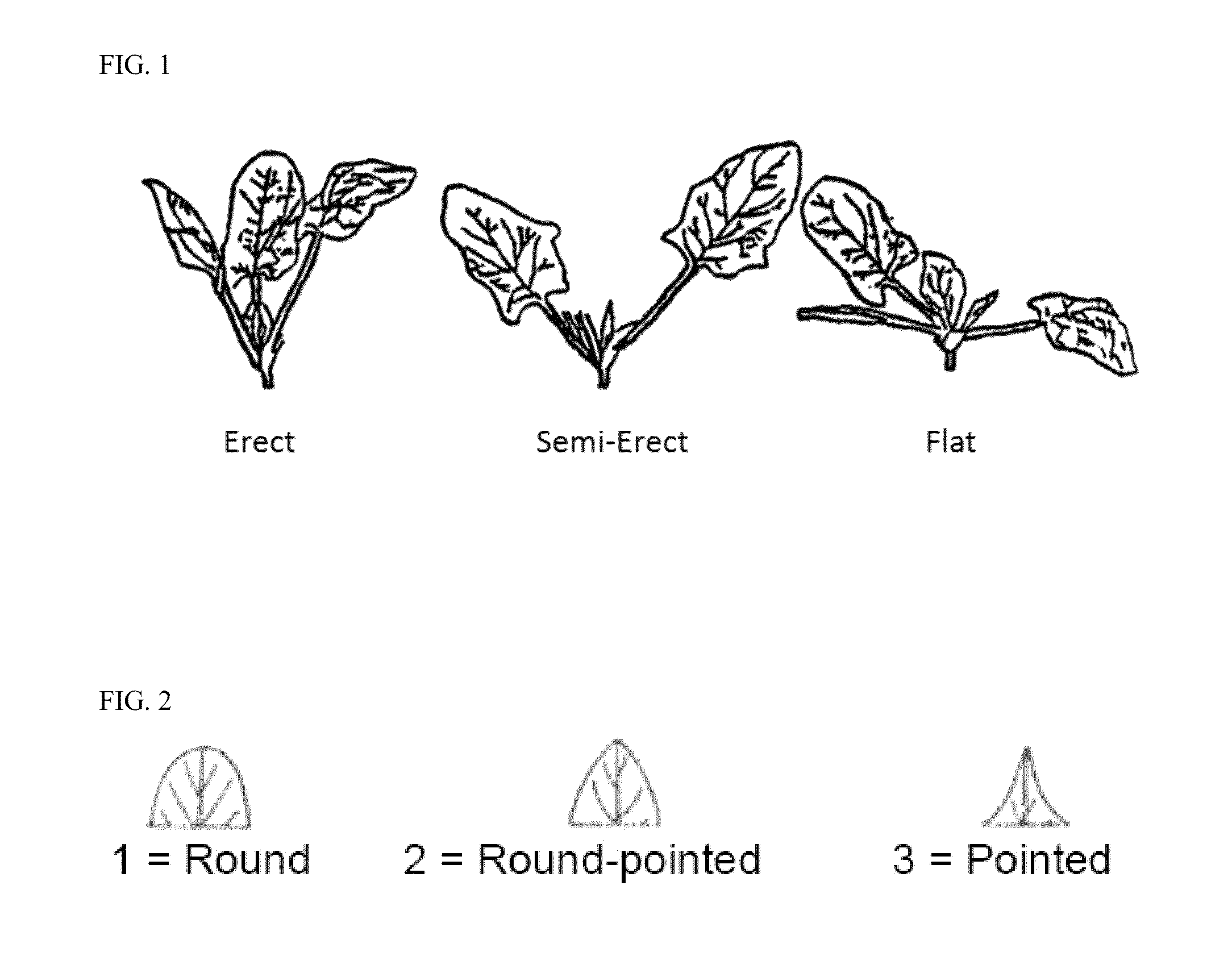Hybrid spinach variety 51-707 RZ
a hybrid spinach and hybridization technology, applied in the field of new hybrid spinach (spinacia oleracea l.), can solve the problems of not being able to harvest marketable leaves, leaves that are easily withered, and fast bolting is thus a very undesired trait, and achieves the effect of easy transfer and easy combination with other resistance genes
- Summary
- Abstract
- Description
- Claims
- Application Information
AI Technical Summary
Benefits of technology
Problems solved by technology
Method used
Image
Examples
Embodiment Construction
[0043]The invention provides methods and compositions relating to plants, seeds and derivatives of a new hybrid spinach variety herein referred to as hybrid spinach variety 51-707 RZ. 51-707 RZ is a hybrid plant variety that is uniform and distinct from other such hybrids, and may be stably produced after a cycle of reproduction.
[0044]There are numerous steps in the development of any novel, plant with desirable characteristics. Selection of traits is a very important aspect of plant breeding. Once desirable traits are identified, the plants with those desirable traits are crossed in order to recombine the desirable traits and through selection, varieties or parent lines are developed. The goal is to combine in a single variety or hybrid an improved combination of desirable traits from the parent plant. These important traits may include but are not limited to higher yield, field performance, fruit and agronomic quality such as fruit shape, color and length, resistance to diseases a...
PUM
 Login to View More
Login to View More Abstract
Description
Claims
Application Information
 Login to View More
Login to View More - R&D
- Intellectual Property
- Life Sciences
- Materials
- Tech Scout
- Unparalleled Data Quality
- Higher Quality Content
- 60% Fewer Hallucinations
Browse by: Latest US Patents, China's latest patents, Technical Efficacy Thesaurus, Application Domain, Technology Topic, Popular Technical Reports.
© 2025 PatSnap. All rights reserved.Legal|Privacy policy|Modern Slavery Act Transparency Statement|Sitemap|About US| Contact US: help@patsnap.com


